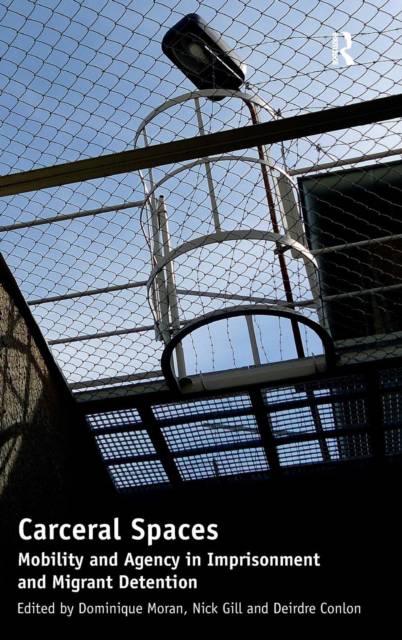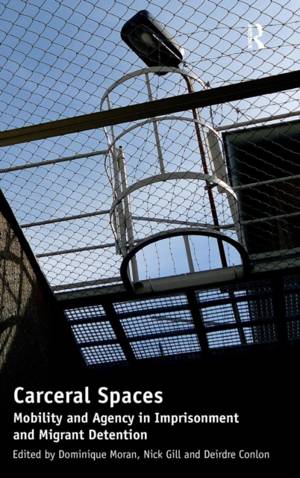
Door een staking bij bpost kan je online bestelling op dit moment iets langer onderweg zijn dan voorzien. Dringend iets nodig? Onze winkels ontvangen jou met open armen!
- Afhalen na 1 uur in een winkel met voorraad
- Gratis thuislevering in België vanaf € 30
- Ruim aanbod met 7 miljoen producten
Door een staking bij bpost kan je online bestelling op dit moment iets langer onderweg zijn dan voorzien. Dringend iets nodig? Onze winkels ontvangen jou met open armen!
- Afhalen na 1 uur in een winkel met voorraad
- Gratis thuislevering in België vanaf € 30
- Ruim aanbod met 7 miljoen producten
Zoeken
Carceral Spaces
Mobility and Agency in Imprisonment and Migrant Detention. Edited by Dominique Moran, Nick Gill, Deirdre Conlon
Nick Gill
Hardcover | Engels
€ 290,45
+ 580 punten
Uitvoering
Omschrijving
This book draws together the work of a new community of scholars with a growing interest in carceral geography: the geographical study of practices of imprisonment and detention. It combines work by geographers on 'mainstream' penal establishments where people are incarcerated by the prevailing legal system, with geographers' recent work on migrant detention centres, where irregular migrants and 'refused' asylum seekers are detained, ostensibly pending decisions on admittance or repatriation. Working in these contexts, the book's contributors investigate the geographical location and spatialities of institutions, the nature of spaces of incarceration and detention and experiences inside them, governmentality and prisoner agency, cultural geographies of penal spaces, and mobility in the carceral context. In dialogue with emergent and topical agendas in geography around mobility, space and agency, and in relation to international policy challenges such as the (dis)functionality of imprisonment and the search for alternatives to detention, this book presents a timely addition to emergent interdisciplinary scholarship that will prompt dialogue among those working in geography, criminology and prison sociology.
Alleen bij Standaard Boekhandel
+ 580 punten op je klantenkaart van Standaard Boekhandel
Beoordelingen
We publiceren alleen reviews die voldoen aan de voorwaarden voor reviews. Bekijk onze voorwaarden voor reviews.












